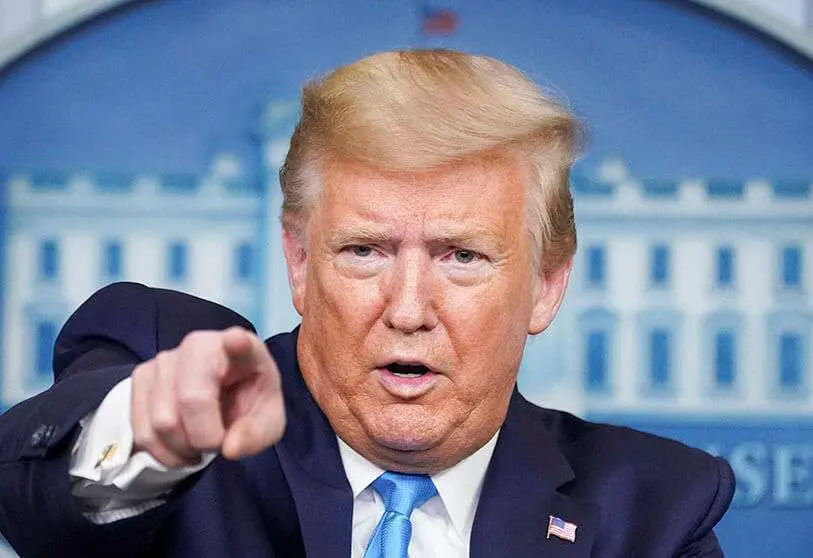The reasons behind Trump's suggestion to delay the election

Donald Trump, president of the United States, dropped the possible option of postponing the elections when there are a little more than three months left to decide who will be the next top U.S. president, and, to that end, he argued that the use of the postal vote will make these elections "the most fraudulent in history.
Trump, who in 2016 received some 3 million fewer popular votes than his Democratic rival Hillary Clinton and became president because of the Electoral College votes, now appears in most polls behind his potential rival, Democrat Joe Biden.
Because of the major impact of the COVID-19 health crisis, several Democratic Party officials and officials support the tool of remote voting in the run-up to the November 3 election, which will decide the presidency and renew one-third of the Senate and all members of the House of Representatives.
Donald Trump made his position known. "With universal postal voting (which is different from absentee voting, which is good), 2020 will be the most PRECISE and FRAUDULENT election in history," Trump said on his Twitter social networking account. "It will be a great embarrassment for the United States," he said, and then proposed, "Postponing the election until citizens can vote properly and safely?
The U.S. president sought to hide his doubts about voting by mail for this statement, but there are other aspects that could be behind this presidential stance: the serious financial crisis in the nation, which has been exacerbated by how the coronavirus pandemic is affecting economic activity, and the high number of victims already caused by COVID-19.
The U.S. economy registered a 9.5% drop in the second quarter due to the onslaught of the pandemic, which means the largest collapse in the country's history, according to statistics published Thursday in the first of three official estimates for the April-June period.
In addition, the number of new applicants for unemployment benefits rose slightly to 1.43 million. After the peak in March, reports said this figure was falling, but the upsurge halted the trend and the number of layoffs is now at an all-time high.
The huge drop in consumer spending, as people stayed at home and avoided shopping, travelling or meeting as the virus spread, caused the economy to contract by almost 32.9% year-on-year during the period April to June. This is more than three times the worst quarterly decline before - a 10% drop in 1958. The slowdown in economic activity in sectors such as business investment, housing construction and public spending possibly also contributed to the worst quarterly contraction since records began in 1947.
Although there are some experts who believe that last quarter's contraction was so severe that the economy is now expected to achieve a marked recovery during the current period from July to September, of up to 17% year-on-year. But with the rate of confirmed coronavirus cases rising in most states, more businesses being forced to cancel their reopenings, and a Senate proposing a reduction in government unemployment benefits, the economy could worsen in the coming months. Against this backdrop, many experts believe that the economy cannot fully recover until the coronavirus is defeated or a vaccine is available.
Analysts warn that things could get even worse if Congress fails to enact enough financial assistance to replace the soon-to-be-expired $600 a week federal unemployment benefits support or to provide sufficient support for businesses and state and local governments. Republican senators on Monday presented a $1 trillion proposal that falls far short of the $3 trillion measure passed by the House of Representatives, leaving huge gaps between various political factions as some elements of the emergency aid programs previously granted by Congress begin to run out.
Meanwhile, in the United States the situation is complicated by the hard blow of COVID-19. The number of deaths and diagnosed cases continue to grow exponentially as the days go by. The total number of confirmed cases of COVID-19 exceeds 4,475,000 and the number of deaths is already over 150,000.
Both the severe downturn in the U.S. economy and the social and health panic caused by COVID-19 could be behind Trump's alleged intention to delay the election to a later time when economic and social conditions are more favorable. The Republican leader may wish to avoid holding the elections in a scenario that is very close to the time marked by the recession and the health impact of the coronavirus, which could seriously harm his chances of being re-elected president.










